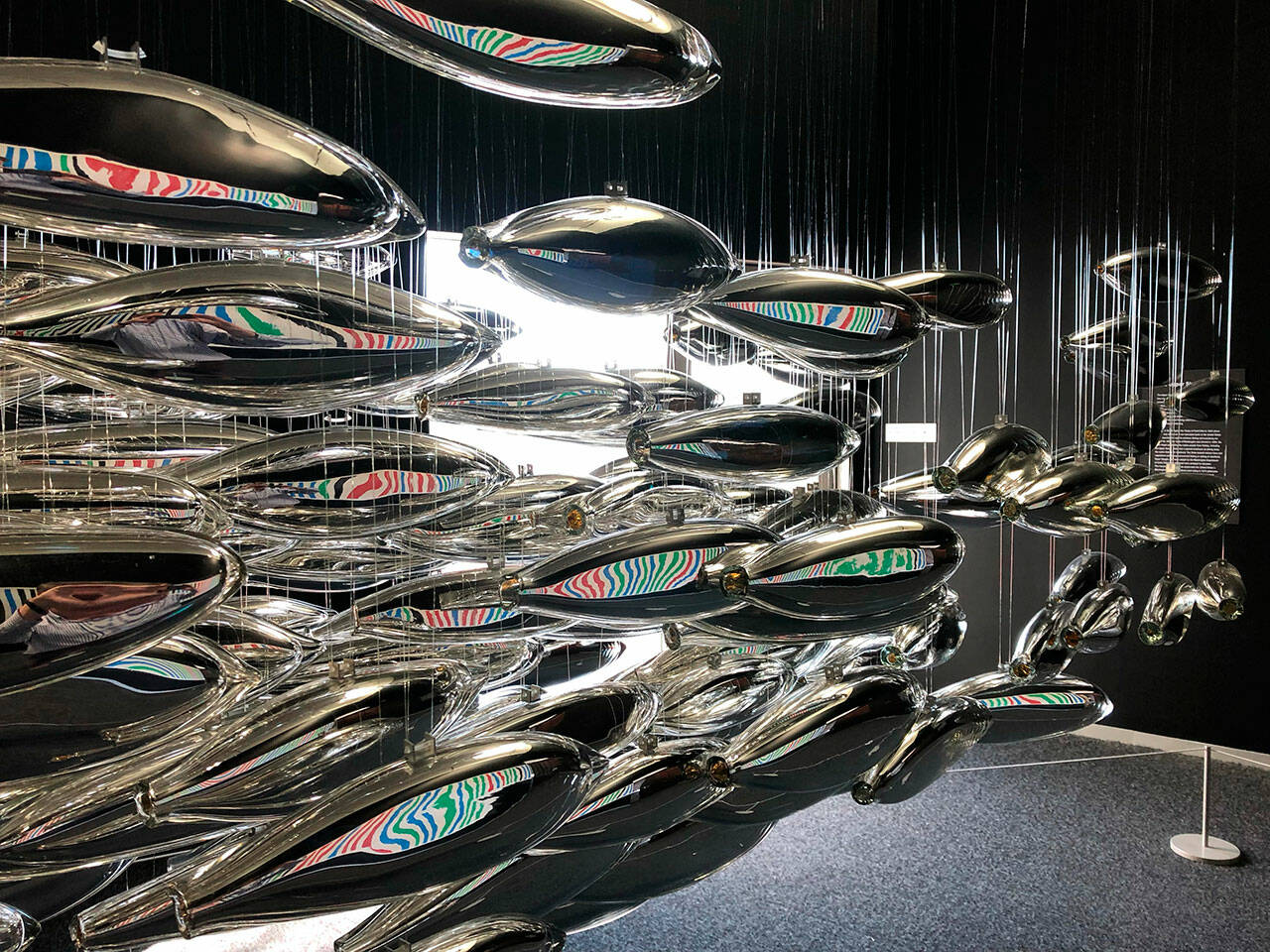By Joseph Rossano and Guido Rahr / For The Herald
When world leaders gather in Glasgow, Scotland, in early November for the 26th United Nations Conference of the Parties climate conference, urgent action is on the agenda. The world’s devastating heat waves, water shortages, storms and wildfires this year make clear how badly we need international cooperation to stop climate change.
But so much of the crisis is hitting close to home, inseparable from how we experience our history and community. Grass-roots change here in our communities and watersheds is needed and possible. That’s why we are proud that the UN climate conference selected “Salmon School” for all world leaders to see on-site. It’s a visually striking cross-disciplinary art project conceived in Joe’s Mount Vernon studio and rooted here in the Pacific Northwest. “Salmon School” is also a social and artistic grass-roots experiment that has drawn in artists, communities and conservation groups from around the world to creatively affirm the bond between humans and fish, civilization and environment. Our shared hope is that Salmon School will help push policymakers to see salmon, climate change and a livable future as inseparable issues.
Artisans from across the globe have collaborated to create the 350 glass salmon forms that make up “Salmon School” and will hang in the Scottish Exhibition Center, where climate delegates will gather. With a mirrored interior, these glass forms reflect the viewer and ask them to contemplate the dire threat that salmon and other wildlife populations face in a changing environment. And as we contemplate the threat, we also consider what action we must take to save them.
We’ve all seen the stories this summer of wild salmon and steelhead suffering in the drought. In order to give wild salmon the space to adapt to climate change, we have to work faster to correct the mistakes of the past; from poorly placed dams to destroyed wetlands to overfishing.
Conservation groups and salmon-dependent communities from around the world will use the showing of “Salmon School” in Glasgow to call for the accelerated protection and restoration of salmon rivers — and in particular, the conservation of cold, clean water — as a fundamental need for the resilience of both wild salmon and humanity.
Acting quickly and decisively, we can save this indicator species; and with it, surrounding ecosystems. We can do this not only for watershed health, but for cultural vitality in our indigenous communities, for wilderness and recreational opportunities and economic health statewide in Washington state’s $450 million salmon economy.
Reducing global greenhouse gases will be critical for the future for all species including salmon and, in fact, protecting existing intact salmon watersheds in carbon-soaking Northwest forests will help. We also need to follow through to protect and restore national priority salmon strongholds such the Snake River and Alaska’s Bristol Bay. But as Wild Salmon Center outlined in our “Ready for Change” climate resilience strategy, local actions — such as removing culverts to open up cold water streams on the Olympic Peninsula’s Bogachiel River or reconnecting floodplains on the Skagit River – can significantly help fish adapt to changes. These actions ultimately protect the clean cold water that is essential for all life; including our own.
Targeted, high-impact local actions things such as fisheries management and water withdrawals are also where most of us have the most ability to make a difference, by influencing local decision-making.
If we can come together with a willingness to be guided by science, to use resources strategically, and to make hard choices, we can restore wild runs of fish in our lifetimes. Bold optimism in the face of change is also at the heart of the “Salmon School” project. It’s that spirit that represents the best of the Pacific Northwest. And will be featured on the global stage in Glasgow.
Joseph Rossano is a multidisciplinary artist and environmentalist who lives in Arlington. Guido Rahr is chief executive of Wild Salmon Center, an international organization based in Portland that focuses on protecting and building climate resilience in salmon strongholds, the North Pacific’s last, best wild rivers. Learn more about the Salmon School project at www.thesalmonschool.com/.
Talk to us
> Give us your news tips.
> Send us a letter to the editor.
> More Herald contact information.

























